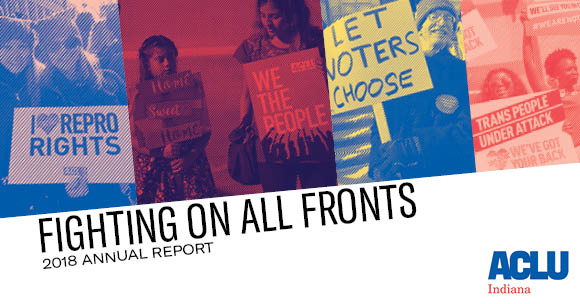Before you read any further, we want to make one thing clear: these stories are your victories.
These pages outline what we accomplished together over the past year. Together, we fought for fairness, freedom and justice in Indiana.
With your help, we fought against discriminatory language in the Statehouse that would have targeted LGBTQ community members.
We remain the first line of defense against an onslaught of antiabortion laws with four ongoing lawsuits in the state of Indiana. We
provided public education on Hoosiers’ voting rights, correcting the misconception that people who have been previously incarcerated cannot vote. They can.
And while this annual report is a look back at 2018, it also offers a glimpse of the future your support helps make possible. The work we
do in the courts, in the legislature and in the streets shapes the future of civil rights and civil liberties in Indiana and in the nation for each generation to come.
